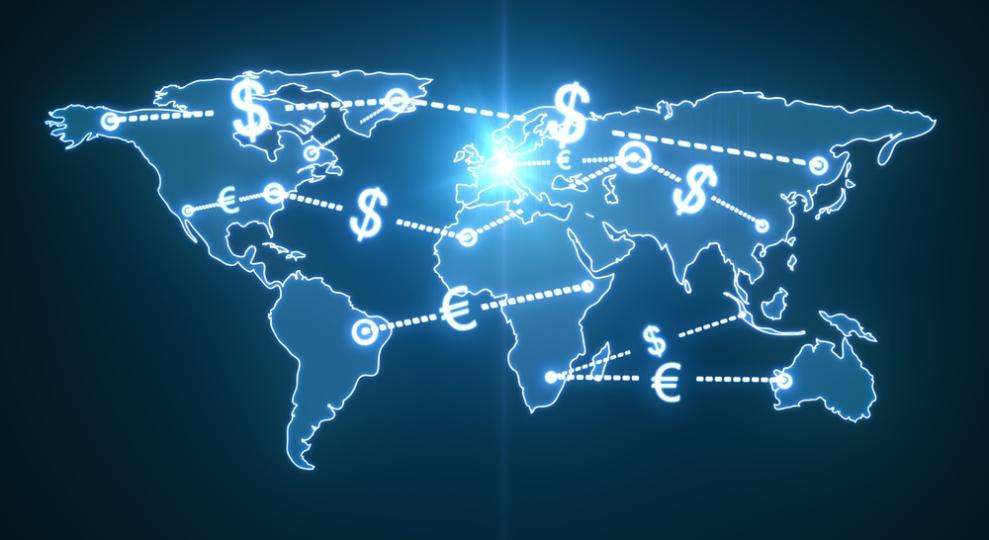Unveiling the Secrets of International Money Transfers: A Journey Through the Complexities of Global Finance
In today's interconnected world, international money transfers have become an integral part of global commerce and personal finance. Whether it's sending money to family abroad, making business transactions, or investing in foreign markets, understanding the intricacies of cross-border payments is essential for navigating the complexities of global finance.

Understanding The Basics:
International money transfers involve the movement of funds from one country to another. These transfers can be made for various purposes, including personal remittances, business transactions, investments, and more. Banks, money transfer operators (MTOs), and other financial institutions play a crucial role in facilitating these transfers, ensuring the secure and timely movement of funds.
Factors Influencing Transfer Costs:
- Transaction Fees: Banks and MTOs charge fees for processing international money transfers. These fees can vary depending on the institution, the amount being transferred, and the transfer method.
- Exchange Rates: The exchange rate between two currencies determines the amount of money that will be received by the recipient. Exchange rates fluctuate constantly, impacting the overall cost of the transfer.
- Transfer Methods: The method chosen for sending money internationally can also affect the cost. Bank transfers are generally slower and may incur higher fees, while online money transfer services and MTOs often offer faster and more cost-effective options.
- Amount Being Transferred: The amount being transferred can also influence the cost. Larger transfers may attract higher fees, while smaller amounts may be subject to lower charges.
- Currency Conversion Charges: When converting from one currency to another, some institutions may charge a currency conversion fee. This fee can vary depending on the currency pair and the institution's policies.
Navigating Exchange Rates:
Exchange rates play a significant role in international money transfers. The exchange rate determines how much of the sender's currency is equivalent to the recipient's currency. Understanding exchange rates and their fluctuations is crucial for optimizing the transfer process. Spot rates, forward rates, and other types of exchange rates can impact the overall cost of the transfer.
Choosing The Right Transfer Method:
- Bank Transfers: Bank transfers are a traditional method for sending money internationally. They are generally slower and may incur higher fees, but they offer the security and reliability of a well-established financial institution.
- Money Transfer Operators (MTOs): MTOs are specialized companies that facilitate international money transfers. They often offer faster and more cost-effective options compared to banks, but may have limitations on the amount that can be transferred.
- Online Money Transfer Services: Online money transfer services provide a convenient and user-friendly platform for sending money internationally. They typically offer competitive exchange rates and low fees, making them a popular choice for individuals and businesses.
- Cryptocurrencies: Cryptocurrencies, such as Bitcoin and Ethereum, have emerged as an alternative method for international money transfers. They offer decentralized and borderless transactions, but their volatility and regulatory uncertainty can pose challenges.
Ensuring Security And Compliance:
International money transfers involve the movement of large sums of money across borders, making them a potential target for fraud and money laundering. Financial institutions and regulatory bodies have implemented various measures to ensure the security and compliance of cross-border transactions. These measures include Know Your Customer (KYC) checks, Anti-Money Laundering (AML) regulations, and secure data encryption.
The Future Of International Money Transfers:
- Blockchain Technology: Blockchain technology has the potential to revolutionize international money transfers. Its decentralized and transparent nature can enhance security, reduce costs, and increase the speed of transactions.
- Digital Wallets: Digital wallets are becoming increasingly popular for storing and transferring funds. They offer convenience, security, and the ability to make payments and transfers in real-time.
- Mobile Money Services: Mobile money services have expanded access to financial services in underserved regions. They allow individuals to send and receive money using mobile phones, making international money transfers more accessible.

As technology continues to evolve, the landscape of international money transfers is likely to undergo significant changes. These advancements have the potential to make cross-border payments faster, cheaper, and more secure, further connecting the global economy.
Understanding the complexities of international money transfers is essential for individuals and businesses engaging in cross-border transactions. By carefully considering factors such as transfer costs, exchange rates, and security measures, it is possible to optimize the transfer process and ensure the safe and efficient movement of funds.

As the world becomes increasingly interconnected, the need for seamless and cost-effective international money transfers will continue to grow. Emerging technologies and innovations have the potential to revolutionize this field, making global finance more accessible and efficient for all.
YesNo

Leave a Reply